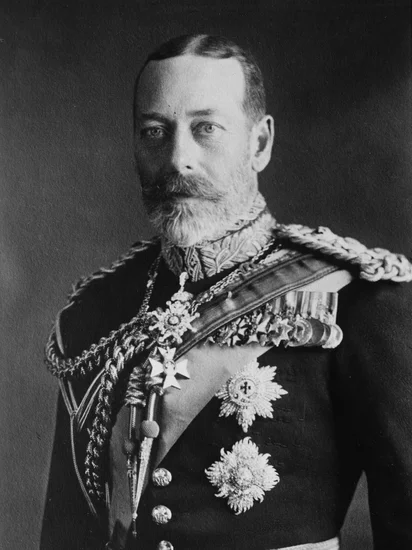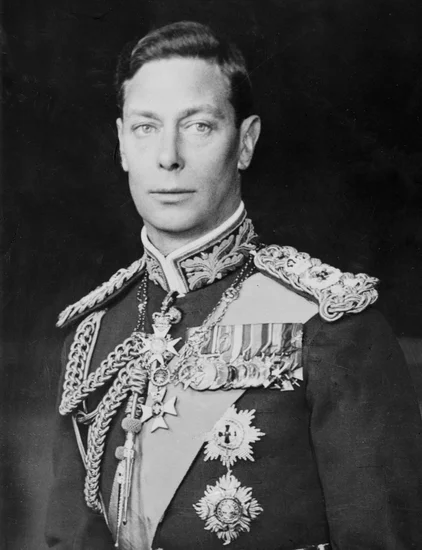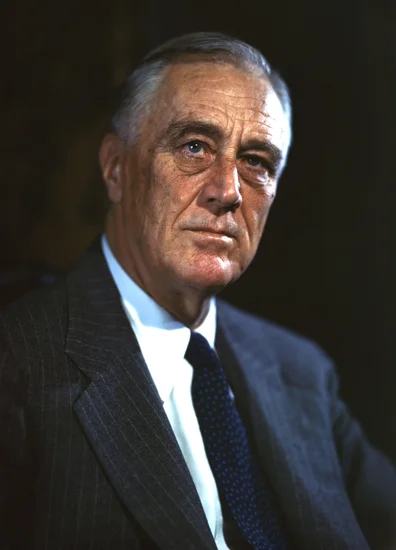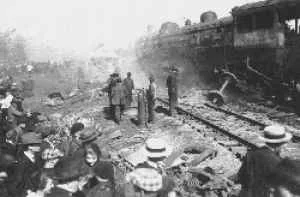June 22 stands as one of history’s most eventful days, witnessing the rise and fall of empires, groundbreaking discoveries, and moments that shaped our modern world across centuries of human achievement.

Politics and Government Events on June 22
1911 – George V and Mary of Teck Crowned King and Queen

Westminster Abbey witnessed the magnificent coronation of George V and Mary of Teck as monarchs of the United Kingdom. The elaborate ceremony marked the beginning of a reign that would span World War I and major social transformation.
The new king inherited an empire at its territorial peak but facing growing challenges. His reign would ultimately oversee the decline of imperial power and the rise of the modern Commonwealth system.
1940 – France Signs Second Compiègne Armistice
Adolf Hitler orchestrated France’s surrender in the exact same railroad car where Germany had signed the 1918 Armistice. The symbolic humiliation divided France into occupied and Vichy zones, fundamentally altering European politics.
Marshal Philippe Pétain’s capitulation marked the end of the Third French Republic. The armistice terms established German control over northern France while creating a collaborationist government in the south.
1948 – King George VI Relinquishes Emperor of India Title

The British monarch formally abandoned his imperial title over India, acknowledging the end of the Raj. This constitutional change reflected Britain’s diminished global influence following Indian independence the previous year.
The symbolic gesture completed the legal separation between Britain and its former crown jewel. George VI’s decision marked the definitive end of centuries of British imperial rule over the subcontinent.
1979 – Jeremy Thorpe Acquitted of Conspiracy Charges

Former Liberal Party leader Jeremy Thorpe was cleared of conspiracy to murder Norman Scott in a sensational trial. The case had dominated British headlines due to allegations of a homosexual relationship between the two men.
The acquittal allowed Thorpe to avoid prison but effectively ended his political career. The scandal highlighted the intersection of personal conduct and public office in British politics.
2012 – Paraguayan President Fernando Lugo Impeached
Paraguay’s Congress removed President Fernando Lugo from office through rapid impeachment proceedings lasting just two days. Vice President Federico Franco assumed the presidency amid widespread international condemnation of the process.
The controversial removal sparked diplomatic tensions across Latin America. Several regional organizations suspended Paraguay’s membership, viewing the impeachment as a parliamentary coup disguised as constitutional process.
Military and Naval History on June 22
1941 – Operation Barbarossa Begins
Nazi Germany launched its massive invasion of the Soviet Union, deploying over three million troops across a 1,800-mile front. The surprise attack shattered the non-aggression pact between Hitler and Stalin, opening the Eastern Front.
The operation initially achieved stunning tactical success, capturing millions of Soviet prisoners. However, the invasion’s ultimate failure marked the beginning of Germany’s strategic defeat in World War II.
1942 – Erwin Rommel Promoted to Field Marshal

The Desert Fox received his field marshal’s baton following the Axis capture of Tobruk in North Africa. Rommel’s tactical brilliance had earned him legendary status among both allies and enemies.
His promotion represented the pinnacle of German success in the North African campaign. The victory at Tobruk provided Germany with crucial supplies and boosted morale across the Afrika Korps.
1944 – Operation Bagration Commences
The Soviet Union launched its devastating summer offensive against German Army Group Centre in Belarus. The operation would ultimately destroy an entire German army group and liberate much of Belarus and eastern Poland.
Stalin’s forces deployed over 1.2 million troops in the coordinated assault. The offensive’s success demonstrated the Red Army’s tactical evolution and marked Germany’s irreversible retreat from the Eastern Front.
1945 – Battle of Okinawa Concludes
American forces raised their flag over Okinawa, ending the bloodiest Pacific campaign of World War II. The 82-day battle had cost over 200,000 total casualties, including approximately 120,000 Japanese defenders.
The victory provided America with a crucial staging ground for the planned invasion of Japan. The campaign’s horrific casualty figures influenced President Truman’s decision to use atomic weapons rather than invade the Japanese mainland.
Science and Discovery Milestones on June 22
1978 – Charon Discovered at Pluto

Astronomer James W. Christy at the United States Naval Observatory first observed Pluto’s largest moon through careful analysis of photographic plates. The discovery revolutionized understanding of the distant dwarf planet’s composition and formation.
Christy noticed unusual elongations in Pluto’s image that suggested a companion object. His meticulous observations revealed that Pluto and Charon form a unique binary system in the outer solar system.
1969 – Cuyahoga River Fire Sparks Environmental Movement

Cleveland’s polluted Cuyahoga River burst into flames, creating a national symbol of environmental degradation. The dramatic incident galvanized public support for comprehensive water pollution legislation.
The river fire became a catalyst for the modern environmental movement in America. Congress responded by passing the Clean Water Act and establishing the Environmental Protection Agency to combat industrial pollution.
2024 – Eastern Afghanistan Earthquake

A devastating earthquake struck eastern Afghanistan, killing over 1,000 people and highlighting the region’s geological instability. The disaster exposed the challenges facing Afghanistan’s humanitarian crisis amid ongoing political upheaval.
International aid organizations struggled to provide emergency assistance due to political sanctions and logistical constraints. The earthquake compounded existing food insecurity and infrastructure challenges across the affected provinces.
Cultural and Arts Events on June 22
1986 – Maradona’s Hand of God Goal

Diego Maradona scored his infamous “Hand of God” goal against England in the World Cup quarter-finals, followed by his brilliant “Goal of the Century.” The controversial match became legendary in football history.
The Argentine maestro’s contrasting goals epitomized his complex legacy as both genius and provocateur. His team’s 2-1 victory propelled Argentina toward their second World Cup triumph, cementing Maradona’s status as football’s most polarizing figure.
1942 – Pledge of Allegiance Formally Adopted
The United States Congress officially adopted the Pledge of Allegiance as a patriotic oath for American citizens. The ceremony formalized a recitation that had been used in schools since the 1890s.
The pledge’s adoption during wartime reflected heightened national unity and patriotic fervor. The formal recognition established a tradition that would become central to American civic education and public ceremonies.
1948 – HMT Empire Windrush Arrives
The passenger ship Empire Windrush brought 802 West Indian immigrants to Tilbury Docks, marking the beginning of large-scale Caribbean immigration to Britain. The arrival fundamentally transformed British society and culture.
The Windrush generation established vibrant Caribbean communities across Britain’s major cities. Their contributions to British culture, from music to cuisine, would profoundly influence the nation’s multicultural identity.
Religious and Social Events on June 22
1966 – Buddhist Uprising Crushed in South Vietnam
Military leader Nguyen Cao Ky’s forces arrested prominent Buddhist activist Thích Trí Quang, effectively ending the Buddhist Uprising against the South Vietnamese government. The crackdown highlighted religious tensions in wartime Vietnam.
The suppression of Buddhist protests demonstrated the military government’s authoritarian approach to dissent. The episode further destabilized South Vietnam’s already fragile political legitimacy during the escalating American involvement.
1944 – G.I. Bill Signed into Law

President Franklin D. Roosevelt signed the Servicemen’s Readjustment Act, commonly known as the G.I. Bill, providing comprehensive benefits for returning World War II veterans. The legislation would transform American higher education and homeownership.
The G.I. Bill enabled millions of veterans to attend college and purchase homes with government assistance. The program created the foundation for America’s post-war economic boom and the expansion of the middle class.
1965 – Japan-South Korea Treaty Signed

The Treaty on Basic Relations between Japan and the Republic of Korea normalized diplomatic relations between the former colonial power and its independent neighbor. The agreement resolved decades of post-war tension and established frameworks for cooperation.
The treaty’s signing marked Japan’s first formal acknowledgment of South Korea’s sovereignty since colonial rule ended. Both nations committed to building peaceful relations while addressing historical grievances through diplomatic channels.
Business and Economic Events on June 22
1990 – Checkpoint Charlie Dismantled
The famous Cold War border crossing between East and West Berlin was ceremonially removed, symbolizing German reunification’s progress. The checkpoint’s dismantling marked the end of an era of division and surveillance.
Checkpoint Charlie had served as the most visible symbol of the Iron Curtain’s division of Europe. Its removal represented the triumph of democratic values over communist authoritarianism and the promise of European integration.
1980 – Virgin Atlantic Launches
Richard Branson’s Virgin Atlantic completed its inaugural flight from London to Newark, challenging established airlines’ dominance of transatlantic routes. The airline’s entry revolutionized passenger service standards and pricing structures.
Virgin Atlantic’s launch introduced innovative amenities and competitive pricing to international aviation. Branson’s bold marketing strategies and customer-focused approach disrupted the traditional airline industry’s conservative business model.
1962 – Air France Flight 117 Crashes

Air France Flight 117 crashed while approaching Pointe-à-Pitre International Airport in Guadeloupe, killing all 112 people aboard. The disaster prompted significant improvements in aviation safety protocols and airport approach procedures.
The crash investigation revealed critical flaws in approach systems and crew training procedures. The tragedy led to enhanced international aviation safety standards and improved emergency response protocols.
Transportation and Infrastructure on June 22
1907 – London Underground’s Charing Cross Line Opens
The Charing Cross, Euston and Hampstead Railway commenced operations, significantly expanding London’s underground transportation network. The new line connected previously isolated neighborhoods to central London’s business districts.
The railway’s opening demonstrated the Underground’s growing importance to London’s urban development. The expansion enabled suburban growth and transformed commuting patterns across the rapidly expanding metropolis.
1918 – Hammond Circus Train Wreck

A catastrophic train collision near Hammond, Indiana, killed 86 people and injured 127 others when a troop train struck a stationary circus train. The disaster highlighted serious safety deficiencies in wartime railroad operations.
The wreck involved performers and crew from the Hagenbeck-Wallace Circus traveling between shows. The tragedy prompted federal investigations into railroad safety procedures and emergency response protocols during the war period.
2009 – Washington Metro Train Collision
Two Metro trains collided near Fort Totten station in Washington D.C., killing nine people and injuring over 80 others. The crash exposed serious flaws in the transit system’s automatic train control systems.
The collision investigation revealed critical maintenance failures and outdated safety equipment. The tragedy prompted comprehensive reforms to Metro’s safety protocols and significant infrastructure investments.
Sports and Recreation on June 22
2007 – Record Tornado Strikes Elie, Manitoba
The small town of Elie, Manitoba, experienced Canada’s most intense tornado on record, reaching F5 intensity on the Fujita scale. The unprecedented storm demonstrated the increasing severity of extreme weather events.
The tornado’s extraordinary strength provided scientists with valuable data about severe weather formation. The event highlighted the need for improved early warning systems and disaster preparedness in Canadian communities.
2000 – Wuhan Airlines Flight 343 Lightning Strike

Wuhan Airlines Flight 343 was struck by lightning and crashed into Wuhan’s Hanyang District, killing 49 people aboard. The accident demonstrated the continuing dangers of severe weather to aviation safety.
The crash investigation led to improved lightning protection systems for aircraft. The tragedy prompted enhanced weather monitoring procedures and pilot training programs for severe weather encounters.
2002 – Iranian Earthquake Kills 261
A magnitude 6.5 earthquake struck northwestern Iran, killing at least 261 people and injuring 1,300 others. The disaster exposed significant deficiencies in Iran’s emergency response capabilities and building standards.
The earthquake’s aftermath generated widespread public criticism of government relief efforts. The tragedy highlighted the need for improved seismic building codes and disaster preparedness in earthquake-prone regions.
Notable Births on June 22
1906 – Billy Wilder Born

Austrian-born American filmmaker Billy Wilder entered the world, destined to become one of Hollywood’s greatest director-producers. His sharp wit and cynical perspective would define film noir and comedy for decades.
Wilder’s European background provided him with a unique perspective on American society. His masterpieces including “Sunset Boulevard” and “Some Like It Hot” established him as a master of both drama and comedy.
1949 – Meryl Streep Born

The future Academy Award-winning actress Meryl Streep was born in Summit, New Jersey, beginning a life that would redefine American cinema. Her remarkable range and dedication to character development would earn universal critical acclaim.
Streep’s method acting approach and linguistic abilities enabled her to master diverse accents and roles. Her career would span five decades, earning her more Oscar nominations than any other performer in history.
1906 – Anne Morrow Lindbergh Born

Pioneer aviator and author Anne Morrow Lindbergh was born into a prominent family, setting the stage for her extraordinary life. Her marriage to Charles Lindbergh would make her one of aviation’s most celebrated couples.
Lindbergh became the first woman to receive a glider pilot’s license and co-piloted numerous record-breaking flights. Her literary works, including “Gift from the Sea,” established her as an influential writer and philosopher.
1903 – John Dillinger Born

America’s most notorious bank robber John Dillinger was born in Indianapolis, Indiana, beginning a life that would captivate Depression-era America. His criminal career would make him Public Enemy Number One during the 1930s.
Dillinger’s bank robberies and prison escapes turned him into a folk hero among Americans struggling through economic hardship. His dramatic life and death epitomized the romanticized outlaw tradition in American culture.
1949 – Elizabeth Warren Born

Future U.S. Senator and presidential candidate Elizabeth Warren was born in Oklahoma City, beginning a journey from bankruptcy law professor to political prominence. Her academic expertise would shape her approach to economic policy.
Warren’s research on middle-class financial struggles informed her political philosophy and legislative priorities. Her advocacy for consumer protection and financial reform would define her career in public service.
Notable Deaths on June 22
1969 – Judy Garland Dies

Hollywood legend Judy Garland died in London at age 47, ending a career that began in childhood vaudeville. Her powerful voice and emotional performances had made her one of entertainment’s most beloved figures.
Garland’s struggles with addiction and mental health issues reflected the dark side of Hollywood’s golden age. Her death marked the end of an era when studio systems controlled performers’ personal and professional lives.
1987 – Fred Astaire Dies

The legendary dancer and actor Fred Astaire passed away at age 88, concluding a career that revolutionized American musical cinema. His elegant style and innovative choreography had defined Hollywood’s golden age of musicals.
Astaire’s partnership with Ginger Rogers created some of cinema’s most memorable dance sequences. His perfectionism and artistic vision established dance as a legitimate cinematic art form worthy of serious critical attention.
2008 – George Carlin Dies

Groundbreaking comedian George Carlin died at age 71, leaving behind a legacy of provocative social commentary and linguistic innovation. His counterculture perspective had challenged American social conventions for five decades.
Carlin’s “Seven Words You Can Never Say on Television” routine sparked nationwide debates about censorship and free speech. His philosophical approach to comedy influenced generations of performers and social critics.
2015 – James Horner Dies

Academy Award-winning composer James Horner died in a plane crash at age 61, silencing one of Hollywood’s most prolific musical voices. His sweeping orchestral scores had enhanced countless blockbuster films.
Horner’s music for “Titanic” became one of the best-selling soundtracks in history. His ability to blend classical and popular elements created emotionally resonant scores that elevated cinematic storytelling.
Holidays and Observances on June 22
Windrush Day (United Kingdom)
The United Kingdom annually commemorates the arrival of the Empire Windrush and celebrates the contributions of British Caribbean communities. The observance honors the courage and resilience of post-war immigrants who helped rebuild Britain.
Windrush Day recognizes the ongoing struggle against discrimination and the fight for equal rights. The commemoration serves as both celebration and reminder of the challenges faced by immigrant communities.
Anti-Fascist Struggle Day (Croatia)

Croatia observes Anti-Fascist Struggle Day to commemorate the beginning of organized resistance against Axis occupation during World War II. The holiday honors those who fought against fascism and defended democratic values.
The observance reflects Croatia’s complex wartime history and its commitment to democratic principles. The day serves as a reminder of the ongoing need to resist authoritarianism and protect human rights.
Day of Remembrance of the Victims of the Great Patriotic War (Belarus)
Belarus solemnly remembers the victims of World War II, honoring the massive sacrifices made during the Nazi occupation. The observance reflects the devastating impact of war on Belarusian society and culture.
The commemoration emphasizes the importance of preserving historical memory and preventing future conflicts. The day serves as a reminder of war’s human cost and the value of peace.
